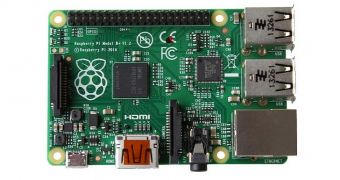Raspberry Pi is one of the most famous prototype boards in the world, beyond what everyone, the Raspberry Pi Foundation included, even dreamed when the first credit card-sized PC came out. Now, a school wants your help to create a Raspberry Pi computer lab.
You see, the Raspberry Pi is actually a very odd device. Not so much because of what it looks like or what it can do, but because of the hype it amassed in spite of the relatively “modest” goals at the time of its initial creation.
The Raspberry Pi Foundation introduced it as a means to teach young students about hardware prototyping and software programming in schools.
However, the popularity of the device exploded to massive proportions almost as soon as it came out, because it could turn any TV into a Smart TV via its integrated HDMI port.
The first prototype was the size of a flash drive, but the final iteration, and subsequent revisions, ended up the size of a credit card (though not as thin).
Many engineers, amateur or otherwise, have since used the Raspberry Pi in things like flying drones, lighting systems, multimedia boxes, robots, etc.
And all the while, the true purpose of the item as an educational tool has been overshadowed. That doesn't mean it has been somehow restricted, however, because indeed, many schools are using it.
Which brings us to today's order of business: a school in Cosmo City, a thriving suburb north of Johannesburg in South Africa, needs funds to set up a Raspberry Pi lab.
An Indiegogo fundraiser has been posted. The minimum goal is of $10,500 / €7,800 and will allow them to equip a building (which they already have) with Raspberry Pi mini computers, as well as peripherals (keyboards, mice) and monitors. Presumably, they will install Linux on the systems.
If they manage to raise an extra $12,000 / €8,900, they will be able to power the entire setup with solar energy alone. It really is too bad that miniature power inverters like the ones Google is hoping to see don't exist yet. They would really help here.
Considering that 77% of South African schools don't have any computers, with 40% lacking electricity altogether, we dare say that this crowd-funding campaign is as worthwhile as they come. It may even establish a precedent that will help other communities do something similar. Sunlight is one thing that South Africa and other countries will never suffer a short supply of.

 14 DAY TRIAL //
14 DAY TRIAL //